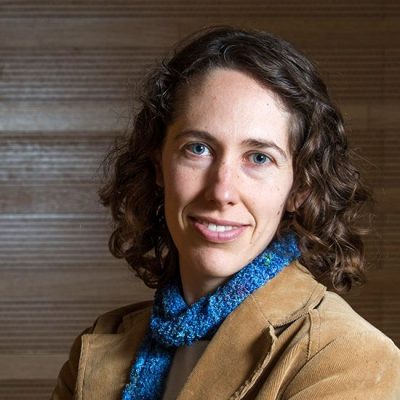About Us
WELCOME TO THE DATA CO-OP LAB
SHIFTING THE BALANCE BETWEEN YOU
AND THOSE WHO COLLECT AND BENEFIT FROM YOUR DATA.
The Data Co-Op Lab is a hub of collaboration between groups spanning continents and academia—NGOs, government agencies in the US and abroad, industry, and other stakeholders—to jointly study ways to improve the status quo of the informational relationships between individuals and those who collect, analyze, and make value of their data. This includes exploring the limitations of the different measures for addressing fundamental problems of the status quo towards establishing ways for these measures to work together.
THE PROBLEM: Technology has made it possible to measure and digitize almost every aspect of our existence: behavioral, social, financial, medical, and much more. It has become commonplace for data brokers to collect and sell our data, and for private companies to extract value from it.
While there is great potential for society and individuals to benefit from personal information, the status quo—where a small number of giant platforms dominate the internet and strip individuals and groups of meaningful choices about how their data are used—leaves individuals vulnerable to a host of information misuses, while denying them fair compensation for the contributions they make to the information-based economy. Even when intended only for business and commercial purposes, the surveillance of individuals entails significant risks for society, including chilling effects on speech, discrimination, political manipulation, and amplified harms to underrepresented communities.
THE GOAL: The goal of this research plan is to develop a host of interventions towards improving the balance between individuals and data platforms, and to understand how these and other interventions can be put to work together to better achieve societal goals.
We propose to address central problems with the current platform-centered data ecosystem by designing a new layer—data co-ops—in the interaction between users and platforms, focusing on mitigating risks to user privacy and individual autonomy while improving the societal benefits from data. A very broad research plan is needed to understand how a combination of technology, economic tools, and policy measures can work jointly towards these goals.
MEET OUR PRINCIPAL RESEARCH TEAM
The principal researchers leading The Data Co-Op Lab form an interdisciplinary group combining deep expertise in computer science, law, and ethics with a deep interest in foundational research on responsible computing that serves and protects individuals, groups, and society at large.
Joining together from universities around the world, each member of the team has well-established, long-term collaborations along research questions spanning cryptography, data privacy, economics of information and privacy, statistical validity, bridging technology and law, and incorporating stakeholders interests in technological design.

ALEXANDRA WOOD

ELIZABETH EDENBERG
As the Assistant Professor of Philosophy at Baruch College, City University of New York, Elizabeth Edenberg specializes in political philosophy, political epistemology, and the ethics of emerging technologies. Her research investigates ways to develop mutual respect across the deep moral and political disagreements that characterize contemporary society, while securing just and legitimate structures of political cooperation that protect the equality and freedom of marginalized populations. She also works in collaboration with computer scientists on broader ethical and political challenges posed by emerging technologies, especially questions of privacy, consent, and social justice as they arise within big data and artificial intelligence.
Prior to joining Baruch College, she served as Senior Ethicist and Assistant Research Professor at Georgetown University’s Ethics Lab where she led translational ethics projects designed to empower both students and experts to address the urgent issues of our time. She led collaborations with a wide variety of partners beyond the academy, from public impact projects to policy teams seeking practical progress on complex ethical issues. She also led Ethics Lab’s work integrating ethics into courses across the university, from computer science to international policy and foreign service.

KOBBI NISSIM
Professor Kobbi Nissim is McDevitt Chair in Computer Science at Georgetown University and affiliated with Georgetown Law. His work focuses on the mathematical formulation and understanding of privacy. His work from 2003 and 2004 with Dinur and Dwork initiated rigorous foundational research of privacy and in 2006 he introduced differential privacy with Dwork, McSherry and Smith. Nissim was awarded the Caspar Bowden Award for Outstanding Research in Privacy Enhancing Technologies in 2019, the Gödel Prize In 2017, the IACR TCC Test of Time Award in 2016 and in 2018, and the ACM PODS Alberto O. Mendelzon Test-of-Time Award in 2013.

KATRINA LIGETT

BENNY PINKAS
A professor in the Department of Computer Science in Bar Ilan University in Israel since 2010, Benny Pinkas received his Ph.D. from the Weizmann Institute of Science in 2000, under the supervision of Moni Naor. He has since been a researcher in the research lab of Intertrust Technologies and HP Labs, a faculty member in the University of Haifa, and a visiting scientist at Google during his sabbatical in the 2011-2012 academic year. He is also a member of the Bar Ilan Cryptography Group and the Deputy Director and Head of Scientific Community at the Center for Research in Applied Cryptography and Cyber Security. His interest and research focus has been computer security, privacy and cryptography, and in particular the design of efficient security systems based on sound assumptions and solid proofs.